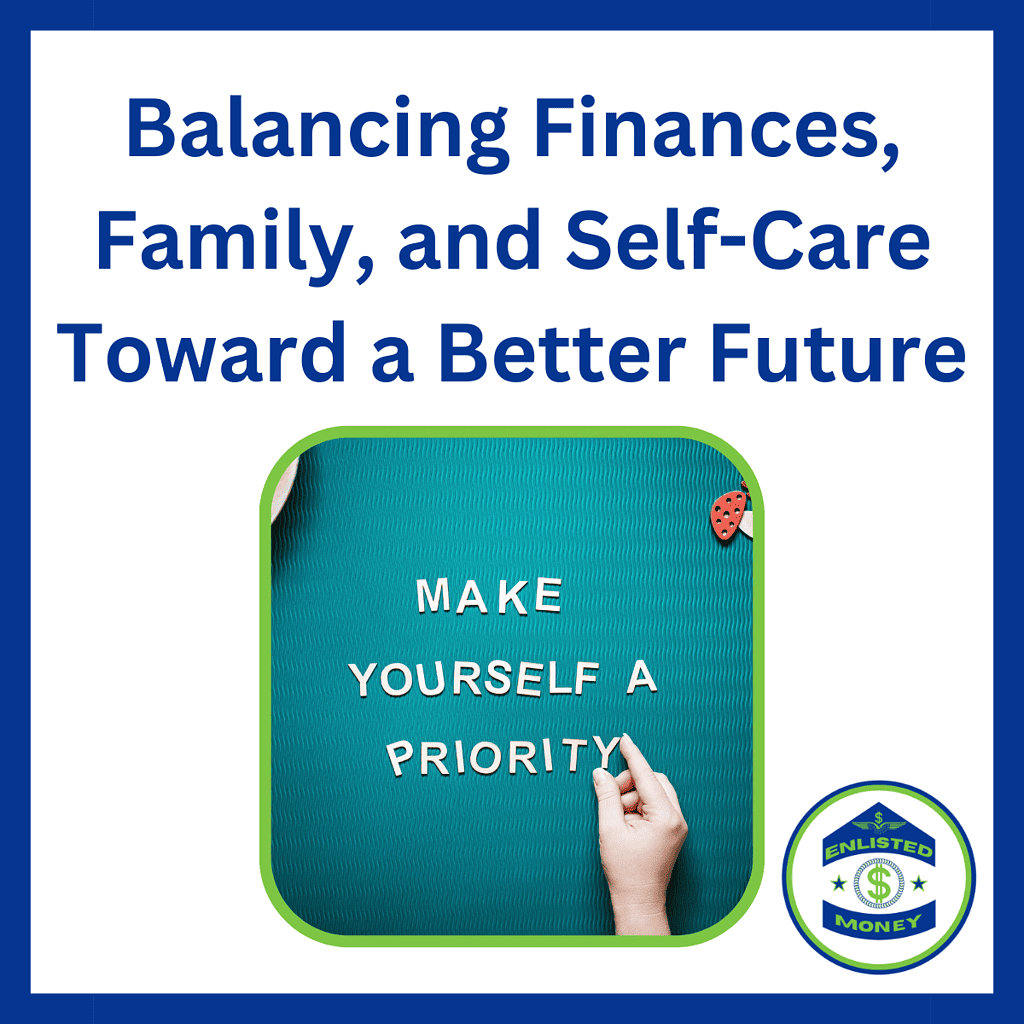
We’re all working hard to get ahead (of who exactly?) with our finances while also balancing all the normal parts of our life. This is a constant ebb and flow for me. I’m super driven to help people, but I often have to force myself to take a step back and reset.
I’m balancing serving on active duty, spending meaningful time with my family, running my paraplanning and content writing business, as well as pursuing my own creative interests like this blog and my (temporarily halted) podcast.
How Do You Do So Much at Once?
Usually when I explain to people everything I do, they ask, “How do you do all that?” It’s all about what I don’t do. I’ve had to adjust my system over the years as well.
I used to pride myself on being the hardest working person I knew. However, I failed to see for years how others were able to cultivate relationships and often get promoted quicker even though I knew they were less capable and did a lot less work. However, I didn’t get mad at them, I learned from them and made a shift to ensure I took care of myself too.
You don’t get an extra prize for burning yourself out. I learned to prioritize things, understand what my limits were, and accept that nobody cared how much I got done. I decided to shift my focus toward the life I wanted, not just the life I was currently living.
Shift to Efficiency
In order to build the life I wanted, while still exceeding expectations for my current roles, I had to become much more efficient. I cut out a lot of things that don’t add value to my life. I don’t really watch TV, sports, or other completely mindless and meaningless (to me) activities.
I built a schedule to allow me to have focused time without interrupting my family time. Here’s a breakdown of my typical weekday:
- 0430 – Wake Up, coffee, personal hygiene
- 0500 – Side Business/Blog
- 0630 – Physical Fitness
- 0800 – Drive to work
- 0900 – Work
- 1200 – Reading or Use Wi-Fi at USO to do more work
- 1300 – Work
- 1630 – Head home (varies)
- 1730 – Dinner and Family Time
- 2000 – Side Business/Blogs
- 2130 – Bed
I obviously have to adjust as things come up, but that’s my general schedule. The key thing is that I can jam in about three to 4 hours of work a day without compromising sleep or family time. I hit things hard during the week, so the weekends are open for spending time with the family. I do have to work on stuff over weekends from time to time, but I typically still try to hit those when everyone else is asleep.
How I Prevent Burnout
I have to be really careful not to burn myself out. I haven’t always been good at recognizing when I’m getting too close to the edge. However, as I’ve grown older and been more open about it, I’m able to recognize when trouble is near. Here’s the things that have helped me the most:
Getting Adequate Sleep
I have found my mental health declines considerably if I get less than 7 hours of sleep per night. I miss that mark every once in a while, but I really try my best to get enough rest. I can tell my mental sharpness is worse, my temper is shorter, and I generally just don’t feel as good if I’m low on sleep.
I know there’s all kinds of scientific evidence to back this up, but I’m not a sleep specialist. I just know how much of a difference it makes to my mental wellbeing. I used to compromise sleep all the time, but not anymore – I can’t afford not to sleep.
Compartmentalize Different Aspects of Your Life
Family time is family time. Work time is work time. I try to be as clear as possible with my family when I’m doing what. Also, this helps me focus, which is a constant struggle for me.
Unfortunately, the lines do get blurred from time to time, but there’s just no way around that right now. Trust me, I’m so ready to only have one job versus two. What I’m doing is sustainable for the next few years, but I really look forward to dialing up the family time in the evenings.
Healthy Eating Habits and Fitness
I eat almost zero sugar. I’ve found that too much sugar also affects my mood and mental health – to include fake sugars. I actually feel like the “sugar free” stuff makes me feel even worse. If I’m going to have junk food, I’ll just have the real stuff. However, I don’t do that very often.
Our diet pretty much consists of grilled, baked, or smoked meats with vegetables. We eat very few processed carbs. I get most of my carbs through dairy or beer (I drink my carbs!).
I’ve also started substituting non-alcoholic beer and that has seemed to help too. Luckily, more and more companies offer non-alcoholic versions. I really like the Sam Adams Gold Rush.
Exercise
Many days, I’ve got organized physical training, but not every day. I try to read and get some type of exercise each day regardless. Even if it’s just a moderate walk through the neighborhood, it seems to help.
I actually don’t do a ton of hard, fast runs anymore. I also don’t get too crazy with lifting either. I integrate physical fitness throughout the day as well. For instance, I built myself up to max the plank on the ACFT just by holding a plank for 2 minutes each day while I was heating up my lunch.
I’m in excellent shape, but I think my diet and sleep routine have more to do with my performance than the workouts do.
Recovery Time
Like I mentioned earlier, I make sure to note when my alarm bells go off (e.g., I’m being an a$$h0le for no reason) and do some self-recovery. For me, this is listening to music and tinkering in the garage, writing out my thoughts and feelings (most never get published), going for a ride on my motorcycle (no music, no phone, just me and the road), a long walk, or taking a quick 15-minute nap.
Sometimes, just going on a vacation with minimal screen time or side project work is what’s needed. My mind goes a thousand miles per hour most of the time, so doing a form of “extended meditation” can be helpful.
Prayer and Faith
I’m not a very religious person, but I am a very faithful person. God speaks to me through nature as well as repeated themes and objects placed in my life. I just have to take time to “listen” and notice things.
We try to go to church on a regular basis, but we don’t go every Sunday. It’s helpful to look outside myself and release control of things. I find comfort in prayer and scripture, so I’ll continue down my walk in faith.
Counseling and Therapy
I very carefully use resources for counseling and therapy. I prefer the chaplain and off-post resources because there’s an incredible amount of risk using resources on base. The Army does a great job of making sure your personal business doesn’t remain your own personal business – especially when you’re seeking help.
Military OneSource has been pretty good for resources as well. My wife and I have both used counseling resources together and separately. It’s very helpful just to bounce things off someone else or get advice.
It’s Just the Season We’re in
It’s (a tiny bit) comforting to remind myself this is just a season we’re in. It won’t be this way forever. I can see the light at the end of the tunnel, roughly 32 months and I can retire from the Army. Then I’ll step off the gas to focus more on my family and business(es).
By the way, I’m on pace to beat my side business revenue from last year. I also just pulled off another personal record for the ACFT (566 points out of 600), and best of all, my relationship with my wife and son feels as good as it’s ever been.
I’m doing great, but it takes an incredible amount of attention to building habits and systems around me to ensure I don’t run off the rails. I guess I’m trying to say, if you’re having a rough time on your journey to financial freedom, you’re not alone. Hope this helps!
